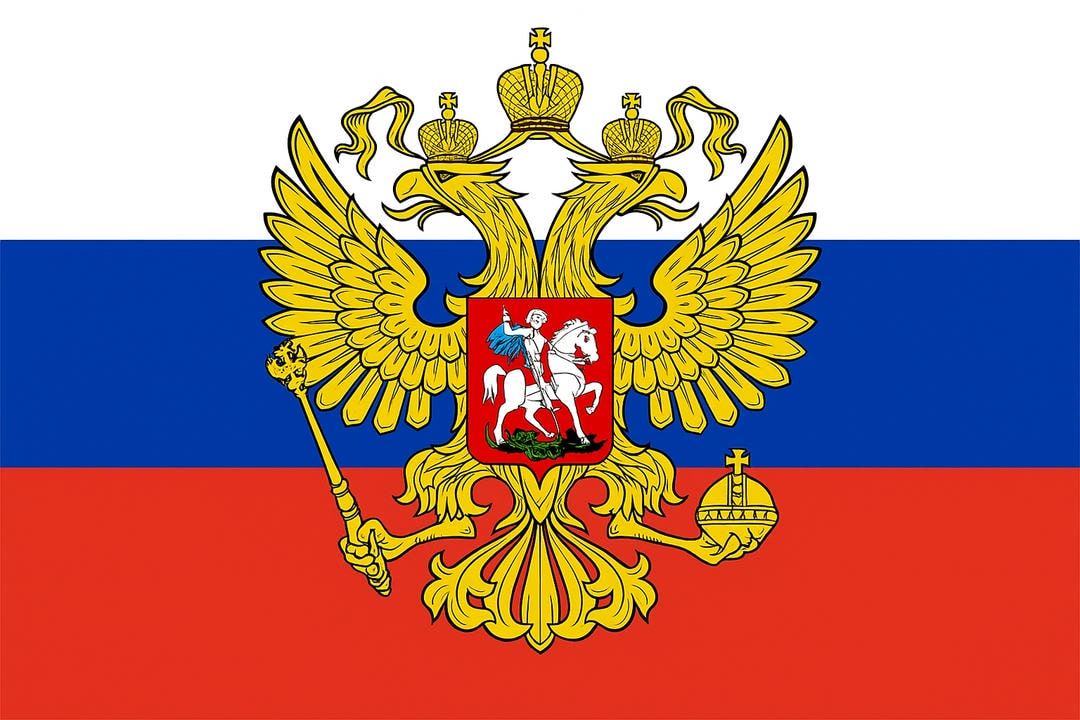When you’re planning a trip to Russia, knowing a few essential phrases can make a world of difference. Imagine navigating through bustling Moscow or serene St. Petersburg with ease, thanks to your ability to ask for directions or order food in Russian. Simple expressions like “Здравствуйте” (Hello) and “Спасибо” (Thank you) can go a long way in breaking the ice with locals and showing respect for their culture. But, what about those crucial moments when you need specific information or assistance? There are a few key phrases you absolutely shouldn’t leave home without.
Importance of Learning Russian
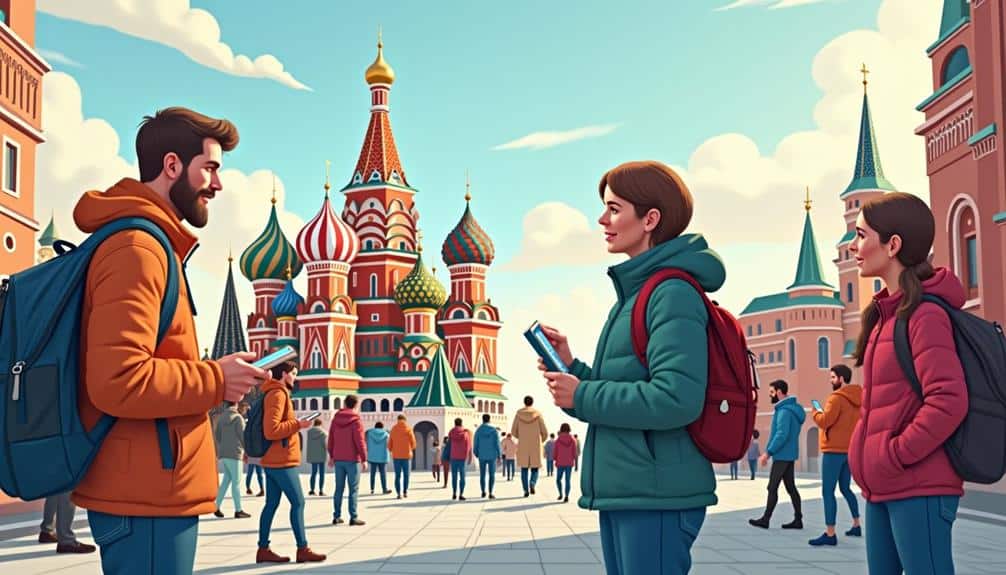
Learning Russian is more than just picking up a new language; it’s a gateway to enhancing your travel experience in Russia. Mastering basic Russian facilitates smoother communication with locals, enabling you to ask for directions or assistance confidently.
It demonstrates cultural appreciation, reflecting your respect for Russian customs and traditions. Practicing travel etiquette, like greeting in Russian, fosters positive interactions and goodwill.
Moreover, understanding key phrases can open up unique opportunities, such as engaging in local events or enjoying authentic experiences that are otherwise inaccessible.
| English | Russian (Cyrillic) | Russian (Phonetic) |
|---|---|---|
| Hello | Здравствуйте | Zdrav-stvuy-te |
| Goodbye | До свидания | Do svi-da-ni-ya |
| Please | Пожалуйста | Po-zha-luy-sta |
| Thank you | Спасибо | Spa-si-bo |
| Yes | Да | Da |
| No | Нет | Nyet |
| Excuse me | Извините | Iz-vi-ni-te |
| Do you speak English? | Вы говорите по-английски? | Vy go-vo-ri-te po-an-gliy-ski? |
| I don’t understand | Я не понимаю | Ya ne po-ni-ma-yu |
| Where is the bathroom? | Где туалет? | Gde tu-a-let? |
| How much? | Сколько? | Skol’-ko? |
| Water | Вода | Vo-da |
| Food | Еда | Ye-da |
| Help! | Помогите! | Po-mo-gi-te! |
| Where is…? | Где…? | Gde…? |
| I’m lost | Я заблудился | Ya za-blu-dil-sya |
| Train station | Вокзал | Vok-zal |
| Airport | Аэропорт | A-e-ro-port |
| Hotel | Гостиница | Gos-ti-ni-tsa |
| Cheers! (for toasts) | На здоровье! | Na zdo-ro-v’ye! |
Overcoming Language Barriers
When traveling in Russia, you might quickly realize that many locals don’t speak English, which can lead to significant communication challenges.
To overcome these hurdles, you’ll need effective communication strategies. Start by mastering basic Russian phrases; even a few words can make a big difference. Non-verbal communication, such as gestures and facial expressions, can also be highly effective.
Translation tools like mobile apps offer real-time assistance, translating spoken and written language instantly. Patience is crucial—misunderstandings are common, but a calm demeanor helps resolve them.
Additionally, showing effort in speaking Russian often encourages locals to assist you more willingly. By combining these strategies, you’ll navigate language barriers more smoothly and enrich your travel experience in Russia.
Politeness and Cultural Engagement
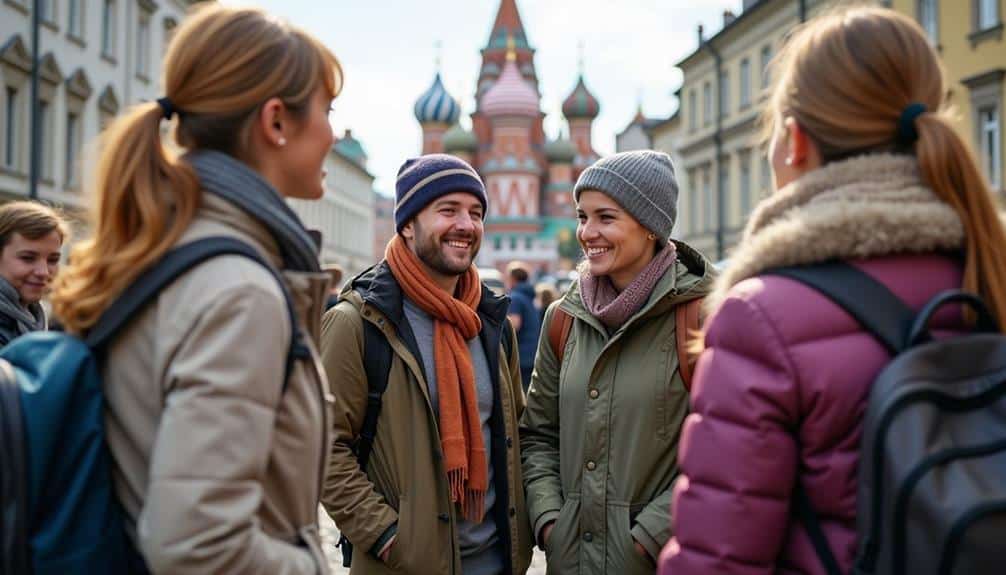
Speaking Russian while traveling in the country isn’t just about practicality; it’s a gesture of politeness that fosters deeper cultural engagement.
Mastering linguistic nuances, such as the correct use of “please” (пожалуйста) and “thank you” (спасибо), demonstrates respect.
These cultural symbols are integral to Russian social interactions. Simple phrases can create positive connections with locals, showing that you appreciate their language and culture.
A smile, combined with a few well-used Russian words, can open doors and hearts. Engaging in this way acknowledges the cultural significance of their language, enhancing your travel experience.
Learning Methods
A myriad of tools are available to help you master essential Russian phrases for your travels. Mobile apps like Duolingo and Babbel offer structured lessons with interactive elements, making language learning engaging and accessible. These apps often include audio from native speakers, which helps you grasp pronunciation and intonation.
For effective memorization, incorporate flashcard activities into your routine. Apps like Anki and Quizlet allow you to create custom flashcards, targeting specific phrases you’ll need. By consistently practicing these flashcards, you reinforce retention and boost recall speed.
Additionally, listening to Russian podcasts or watching videos provides contextual understanding. Combining these methods ensures a comprehensive learning experience, making your travels smoother and more enriching.
Essential Travel Phrases
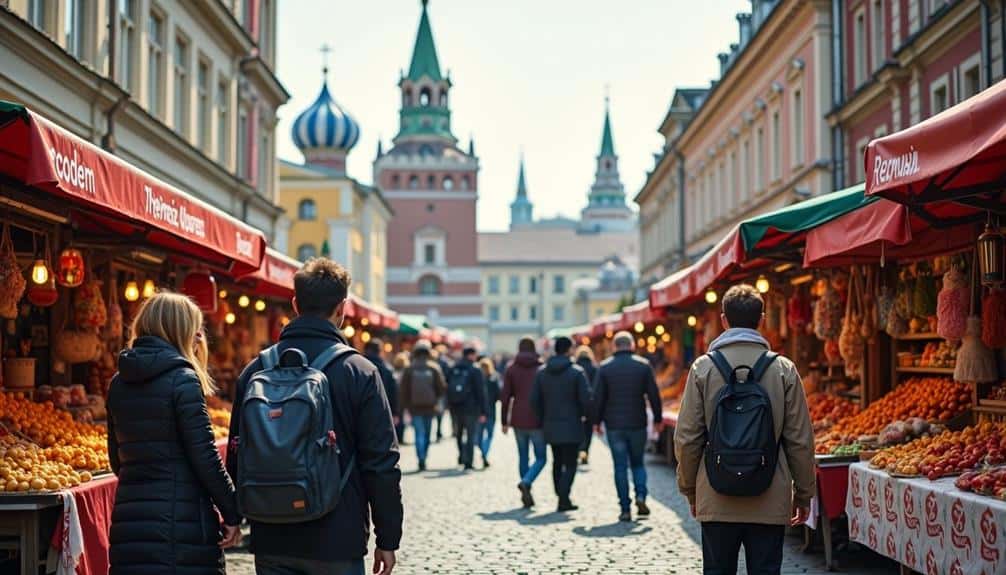
Mastering essential travel phrases in Russian can significantly enhance your travel experience. Basic expressions like “Здравствуйте” (Hello), “Спасибо” (Thank you), and “Пожалуйста” (Please) are key to polite interactions.
When asking common questions, phrases such as “Где находится…?” (Where is…?) and “Сколько стоит?” (How much does it cost?) are invaluable. Familiarize yourself with “Я не понимаю” (I don’t understand) and “Вы говорите по-английски?” (Do you speak English?) for smoother communication.
For essential navigation, “Как добраться до…?” (How do I get to…?) and “Мне нужна помощь” (I need help) are crucial.
These expressions not only aid in daily interactions but also show respect for Russian culture, making your journey more rewarding.
| English | Russian (Cyrillic / Phonetic) |
|---|---|
| Where is the airport? | Где аэропорт? / Gde aeroport? |
| I need a taxi | Мне нужно такси / Mne nuzhno taksi |
| One ticket to [destination], please | Один билет до [destination], пожалуйста / Odin bilet do [destination], pozhaluysta |
| Where is the train station? | Где вокзал? / Gde vokzal? |
| What time does the bus leave? | Во сколько отправляется автобус? / Vo skol’ko otpravlyayetsya avtobus? |
| Is this seat taken? | Это место занято? / Eto mesto zanyato? |
| Where can I buy a metro ticket? | Где можно купить билет на метро? / Gde mozhno kupit’ bilet na metro? |
| How much is the fare? | Сколько стоит проезд? / Skol’ko stoit proyezd? |
| Which platform for [destination]? | С какой платформы идет поезд до [destination]? / S kakoy platformy idet poyezd do [destination]? |
| Is this the right bus for [destination]? | Этот автобус идет до [destination]? / Etot avtobus idet do [destination]? |
| Where is the baggage claim? | Где получение багажа? / Gde polucheniye bagazha? |
| I need to check in | Мне нужно зарегистрироваться / Mne nuzhno zaregistrirovat’sya |
| Where is the departure gate? | Где выход на посадку? / Gde vykhod na posadku? |
| Is there a direct flight to [destination]? | Есть ли прямой рейс до [destination]? / Yest’ li pryamoy reys do [destination]? |
| Can I have a window seat? | Можно место у окна? / Mozhno mesto u okna? |
| Where is the car rental? | Где прокат автомобилей? / Gde prokat avtomobiley? |
| I’d like to book a room | Я хотел бы забронировать номер / Ya khotel by zabronirovat’ nomer |
| Is there a city map? | Есть карта города? / Yest’ karta goroda? |
| How do I get to the city center? | Как добраться до центра города? / Kak dobrat’sya do tsentra goroda? |
| Where is the nearest tourist information center? | Где ближайший туристический информационный центр? / Gde blizhayshiy turisticheskiy informatsionnyy tsentr? |
Social Interactions
For travelers looking to immerse themselves in Russian culture, mastering social interactions is key to forming meaningful connections.
When making friends, start with “Привет” (Privet) for hello and “Как вас зовут?” (Kak vas zovut?) to ask someone’s name.
Sharing experiences can be facilitated with “Откуда вы?” (Otkuda vy?) meaning “Where are you from?” and “Что вам нравится делать?” (Chto vam nravitsya delat?) for “What do you like to do?”.
To convey gratitude, use “Спасибо” (Spasibo) for thank you.
Engaging in these interactions shows respect and interest in others’ lives, making your travel more enriching. A solid grasp of these phrases enhances your ability to connect, ensuring a memorable cultural experience.
Food and Dining
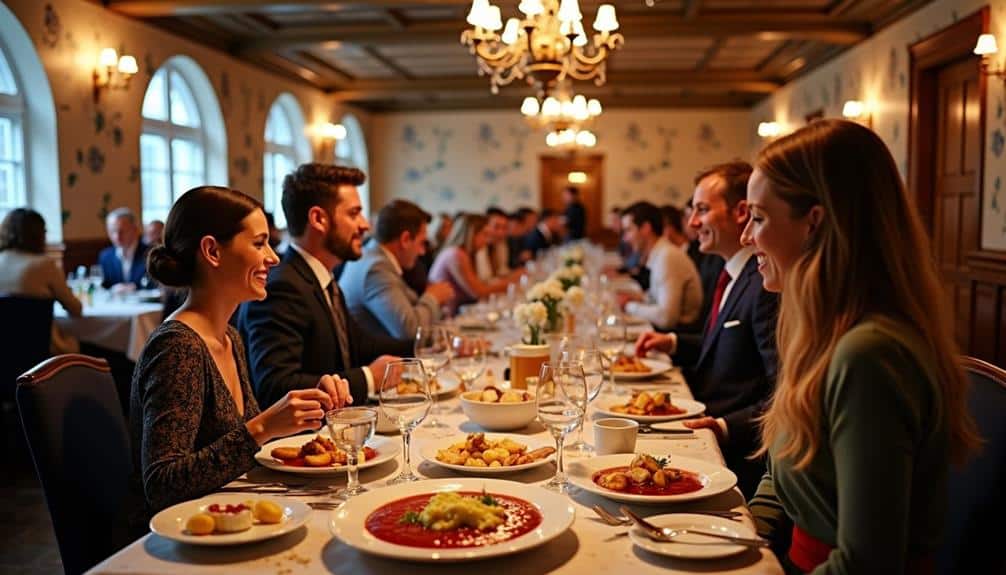
Engaging in social interactions naturally leads to shared meals and dining experiences, which play a pivotal role in Russian culture.
When examining menus, knowing phrases like “Что вы рекомендуете?” (What do you recommend?) can help tailor your menu preferences.
Ordering is straightforward with “Я буду…” (I’ll have…) followed by your chosen dish.
Understanding dining etiquette is crucial: begin with “Пожалуйста” (Please) and end with “Спасибо” (Thank you).
Remember that tipping is customary, typically around 10%.
Requesting the bill requires “Счёт, пожалуйста” (The bill, please).
Familiarizing yourself with these phrases ensures a smoother dining experience and demonstrates respect for Russian customs.
| English | Russian (Cyrillic) | Russian (Phonetic) |
|---|---|---|
| Where is the restaurant? | Где ресторан? | Gde restoran? |
| Menu, please | Меню, пожалуйста | Menyu, pozhaluysta |
| Water | Вода | Voda |
| Bread | Хлеб | Khleb |
| Coffee | Кофе | Kofe |
| Tea | Чай | Chai |
| Milk | Молоко | Moloko |
| Sugar | Сахар | Sakhar |
| Salt | Соль | Sol’ |
| Pepper | Перец | Perets |
| Check, please | Счёт, пожалуйста | Schyot, pozhaluysta |
| Where is the supermarket? | Где супермаркет? | Gde supermarket? |
| How much does it cost? | Сколько это стоит? | Skol’ko eto stoit? |
| Vegetarian | Вегетарианский | Vegetarianskiy |
| I’m allergic to… | У меня аллергия на… | U menya allergiya na… |
| Breakfast | Завтрак | Zavtrak |
| Lunch | Обед | Obed |
| Dinner | Ужин | Uzhin |
| Bon appétit | Приятного аппетита | Priyatnogo appetita |
| Cheers! (for toasts) | На здоровье! | Na zdorov’ye! |
Transportation Queries
Navigating Russian cities requires familiarity with essential transportation phrases. Knowing how to ask for directions and decipher public transport options can significantly enhance your travel efficiency.
Start with “Где находится автобусная остановка?” (Where is the bus stop?) or “Как добраться до метро?” (How do I get to the metro?).
Mastering phrases like “Сколько стоит билет?” (How much is the ticket?) and “Когда отправляется следующий поезд?” (When is the next train?) ensures smoother transit.
Understanding terms like “аэропорт” (airport), “такси” (taxi), and “автобус” (bus) is crucial.
Utilizing these phrases not only helps you navigate but also shows respect for local customs, making your travels more rewarding and efficient.



